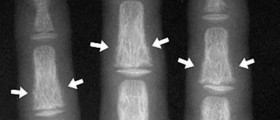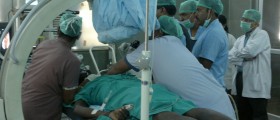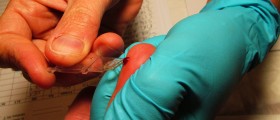
Kidney/renal biopsy
Kidney biopsy and renal biopsyare two names used for the procedure performed in order to determine theproblem with the kidney. This procedure is very important since it can giveimportant information and it is safe for the patient. We will focus on this procedureand reasons why it should be performed along with some complications that canarise.
Reasons
As we have said, it isdone for those with kidney problems. There are several tests that are performedprior to renal biopsy, and when all of them are ineffective in diagnose, a renalbiopsy is performed. Problems like proteins or blood in the urine and certainproblems with kidney function will require kidney biopsy. When the levels ofproteins in blood are high, problems may occur, as well as stop or impairedkidney function.
Procedure
Next we will discussabout the procedure of renal biopsy. The first part is the preparation, andduring this stage, patient will require some testing that will show if theyhave a blood clotting abnormality or some infection. There is a risk ofbleeding after the procedure, and to decrease the risks of this, a patient willneed to eliminate the use of certain medicines at least fourteen days beforethe surgery. Medicines such as naproxen, ibuprofen and Aspirin have to be eliminatedfrom the use. When the procedure begins, local anesthesia is given and theneedle is inserted into the kidney. During the procedure, patient is awake.Doctor can do an x-ray or ultrasound in order to determine the exact locationand the kidney and make the exact entry point for the needle. The needle isused to get a sample from the kidney.
Renal biopsy can be done differently,with sedative, and during this type of procedure, incision is made, throughwhich a sample of the tissue is taken in order to perform test. The sample isput under the microscope and abnormal deposits, infections and scaring aresearched for. Several hours of recovery are needed after the procedure. Duringthis period the patient will be monitored, since bleeding, pain or some othercomplications can happen.
Complications
Complications that aremore serious happen very rarely. Bleeding, pain and blood vessels abnormalconnection are some of the benign complications that are possible. If the painoccurs, some medications can be used, but in cases of prolonged pain, aprofessional should be seen. Bleeding can occur after the surgery, and you willhave to visit a doctor if you notice blood in the urine. The possibility ofinjury of the veins or arteries by the needle can happen as well, and in thisway fistulas are created, but they close on their own after some time.

















Your thoughts on this
Loading...